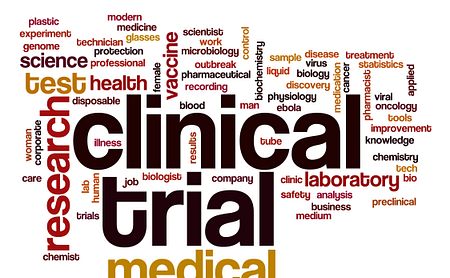First Patient Enrolled in Pridopidine Arm of the HEALEY ALS Platform Trial

A pivotal clinical trial evaluating pridopidine for the treatment of amyotrophic lateral sclerosis (ALS) has enrolled its first participant, Prilenia Therapeutics, the medicine’s maker, announced.
The Phase 2/3 study, dubbed HEALEY ALS Platform – Regimen D Pridopidine (NCT04615923), will compare the safety and effectiveness of pridopidine to placebo in an estimated 160 ALS patients, ages 18 and older.
This study is one of four to date in the HEALEY ALS Platform trial (NCT04297683), which is currently recruiting adults with sporadic or familial ALS at 54 locations within the U.S.
As a platform trial, HEALEY analyzes the potential of several ALS treatment candidates simultaneously, as a way to speed the development of those that appear most promising. As new investigational products become available, additional regimens will be added to the trial.
“Enrolling the first patient in the HEALEY ALS platform trial for treatment with pridopidine is great news for both the ALS patient community and Prilenia,” Prilenia CEO Michael R. Hayden, MD, PhD, said in a press release.
Pridopidine is designed to boost motor neuron survival and protect those neurons from degradation. It does this by enhancing the activity of the sigma-1 receptor (S1R), which improves the movement along nerve fibers of two molecules that support the growth and survival of neurons — brain-derived neurotrophic factor and glial cell line-derived neurotrophic factor.
In preclinical studies, the compound reduced toxic protein aggregation and muscle fiber wasting in a mouse model of ALS.
Participants in the pridopidine trial will receive either placebo or 45 mg of the investigational therapy, twice daily for 24 weeks. As in other HEALEY ALS trials, participants will be assigned randomly to either the investigative treatment or a placebo in a 3:1 ratio, meaning that for every three patients on treatment, one will be given a placebo.
The trial’s main outcome is to measure patients’ changes in ALS severity over time, as measured by the ALS Functional Rating Scale-Revised. Secondary measures include changes in bulbar function, namely in the ability to talk, swallow, respiratory function and muscle strength.
An independent review committee selected pridopidine from among 30 competing compounds, based on human genetic data, the results of preclinical trials, the drug’s favorable safety profile, and its readiness of supply.
“Previous studies with pridopidine demonstrate it is a highly selective S1R agonist with an extensive safety record and a great therapeutic potential in multiple neurodegenerative disorders including [Huntington’s disease] and ALS,” Hayden said.
ALS specialists of the Sean M. Healey & AMG Center for ALS at Mass General Hospital oversee and lead the HEALEY trial, in which several pharmaceutical companies participate. Scientists and members of the Healey Center Science Advisory Committee picked the six most promising treatments for the study.
Besides pridopidine, these include Ra Pharma’s zilucoplan, Biohaven Pharmaceuticals‘ verdiperstat, Clene Nanomedicine’s CNM-Au8, Implicit Bioscience‘s IC14 immunotherapy, and Seelos Therapeutics’ SLS-005.
“ALS is a serious disease, with no treatments that halt or reverse disease progression currently available,” said Merit Cudkowicz, MD, director of the Sean M. Healey & AMG Center for ALS and the trial’s principal investigator. “Pridopidine is one of the top drugs selected for our ALS platform trial due to the strength of its preclinical efficacy data and safety profile, which demonstrate its potential as a breakthrough treatment.”






